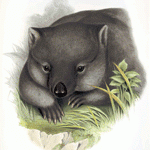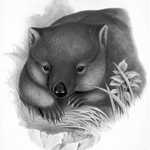Old Writing And New
I recently checked a book of pulp reprints out of the library and read a few of the short stories, including a fairly long Saint story by Leslie Charteris, one by Dashiell Hammett, and one by Steve Fisher.
I was a big fan of the Saint stories in my late teens and I was a little afraid I would be disappointed when I read one as a more mature reader. The story wasn’t quite as good as I remember Saint stories being, but it wasn’t bad. The other two were quite good. This was my first exposure to either authors and I wasn’t disappointed.
So how did these stories from the 1930s stack up against modern stories? They probably wouldn’t have gotten published if a new author had put them into today’s market, but they weren’t bad. The prose violated a lot of the conventions that modern writers are taught, with a lot more adjectives than you would expect in a modern story. The vocabulary was richer than I would have expected. Pulps were the popular literature of the day, looked down on by ‘real’ magazines and real writers, but if these stories are any indication the consumers of popular literature were far more literate than most of them are these days.
Writing that gets published tends to fit the time it is written. Good writing isn’t a universal thing. These stories were slower paced and more descriptive than a modern story for a similar audience might be because they had an audience with a longer attention span and fewer competing media competing for attention. They had richer vocabulary because their audience had a better vocabulary. They had probably somewhat simpler plots because the relatively simple ones hadn’t been used a hundred times already. Authors didn’t have to go to great lengths to come up with fresh twists on a plot because they had 70 to 80 years less accumulated writing to build on and to make what had originally been a fresh idea into a tired, overused one.
It’s been an interesting experience. I’ll probably read more of these stories. I envy the writers their comparatively uncluttered markets and their comparatively large and literate audiences.



I find older stories much different as well. As long as I expect them to be that way—different word choices, odd punctuation, liberal use of modifiers—then I’m prepared to enjoy the story. If I pick up an older book not realizing it is from a different era, I’m sometimes disappointed.
I read the Emilie Loring romances as a teen—very different from the popular romances of the day. Dated, yes. But still enjoyable for what they were.
I also find we don’t have the vocabulary and the depth of knowledge in some subjects that earlier generations had. The trade-off is that we do know a lot about subjects that weren’t even imagined 100 years ago. I like the gain in knowledge but not the loss. I wish there was a way we could have it all.
A thought-provoker post, Dale.
I like reading a mix of old and new because it gives a useful perspective. It’s amazing how well some of the old stuff (I’m thinking of Dumas, for example) works today–our humanity and our great stories are truly timeless.
I recently read both Hammet and Raymond Chandler. I liked the Chandler much better, and the vocabulary is really challenging. I like that about older books. So many of today’s books feel so facile and disposable to me.